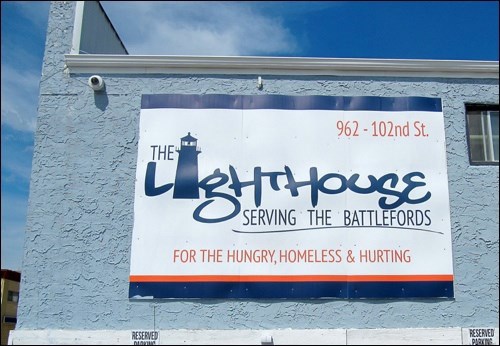NORTH BATTLEFORD - Earlier this year, Métis Nation–Saskatchewan stepped in to stave of the closing of the homeless shelter in North Battleford. Now Battlefords Agency Tribal Chiefs has stepped into the gap to keep things running for another six months while a permanent solution is sought.
MN–S, the City of North Battleford, BATC, and The Lighthouse Supported Living are collaborating on a local effort to help address homelessness in the Battlefords.
In a statement issued Tuesday, it was stated the partnership will ensure the homelessness service remains accessible beyond MN–S funding for The Lighthouse Serving the Battlefords, which ends Sept. 30.
According to Métis Nation–Saskatchewan, The Lighthouse has agreed to lease the North Battleford shelter to BATC to operate over the next six months while evaluating their service model to become a more community-based organization with community partner focused programming.
In March of this year, The Lighthouse did not qualify for homelessness funding and was at risk of closing the shelter in the North Battleford location. At that time, MN–S stepped in with its commitment to fund services to the most vulnerable.
The North Battleford Lighthouse Supported Living emergency shelter was able to remain open until the end of September.
Over the last six months, multiple community leaders in and around the Battlefords have been discussing a collaborative and achievable plan to respond to homelessness come Oct. 1.
“The City of North Battleford is very thankful for our community-minded partners that have worked together to develop an innovative approach to continue this needed service for the homeless in the Battlefords,” said North Battleford Mayor David Gillan.
MN–S Housing Minister Ryan Carriere said, “Homelessness prevention can not be done successfully by one operator from outside the community. A community-based partnership approach is more effective in achieving our goal of eliminating homelessness.”
BATC has stepped up to assume the full operations of the homeless shelter in North Battleford, with short notice. Community programming, outreach, partnerships and a strong strategic plan will improve the lives of the shelter’s guests and the day-to-day operations.
“It is with pride that we have worked with our Elders to create a new name, ‘Miywasin Kikinaw - a beautiful place,’ says a statement from BATC. “It is our hope to work with clients on a case-by-case basis, while focusing on health, wellness, and future transitioning. This has been close to our hearts. We have provided funding to The Lighthouse for over a decade. It makes sense to all of us at BATC to lead a new, more innovative approach to addressing homelessness in the Battlefords.”
Looking six months ahead
Over the next six months, The Lighthouse board will be working on strengthening community partnerships in the Battlefords and Saskatoon, evaluating current homeless programming, improving reporting and transparency practices, and developing a strong, long-term sustainable plan to ensure the risk of closing the doors in the future will be mitigated.
The Lighthouse Board Chair Jerome Hepfner said, “Building strong partnerships within the community is essential to ensure the needs are being properly served. We are committed to evolving the services to support the Battlefords and surrounding area in the best way possible through these partnerships.”
A community impact meeting will be held in the coming weeks to bring together all housing and community service providers to understand what programs the Lighthouse may have to suspend and establish a coordinated community effort to fill gaps that may exist in and around the Battlefords resulting from the transition.
MN–S Housing Director Christena Konrad said, “This meeting is to make sure the community is aware of challenges and the temporary change. It will allow all community partners to work together and fill gaps that may remain from the transition. The meeting will also uncover duplication of services or identify programming that has a low impact on the community overall.”



